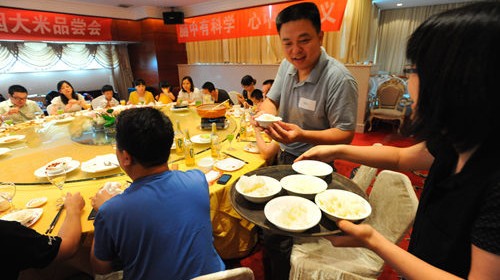Unauthorized GM crops face intensified oversight

China will further step up the supervision of genetically modified food technologies to prevent commercial cultivation of unauthorized varieties, a senior rural affairs official said.
The call follows several suspected cases of farmers illegally growing genetically modified crops in the country.
“We need to work to prevent unauthorized varieties from entering markets illegally, starting from the very beginning of the process,” said Han Jun, deputy director of the Office of the Central Rural Work Leading Group.
The country will step up the supervision of research technologies, varietal certification and the production and distribution of GM food, Han said at a news conference in Beijing on Thursday. The group is China’s top rural affairs decision-making agency.
China’s agricultural authorities still have to approve the marketing of GM grains, with only domestic GM papaya and cotton being approved for commercial cultivation.
Han said that the country has investigated and treated cases of farmers illegally growing GM rice, and the cases indicated that there should be stronger efforts to prevent such illegal activities.
A report by environmental nonprofit organization Greenpeace earlier this month also claimed that farmers are illegally growing genetically modified corn in China’s northeast. The organization claimed that 93 percent of samples taken last year from corn fields in five counties in Liaoning province tested positive for GMO contamination.
The Ministry of Agriculture has not replied to a request for comment on the report.
According to the first policy document issued by the Communist Party of China Central Committee this year-which usually signifies a top priority-the country will step up the research of agricultural GM technologies, and will promote them after ensuring their safety. The policy document focused on rural issues for the 13th consecutive year.
Last year, the central government said the country will try to remove public misconceptions about GM science.
Han said China cannot afford to lag behind in agricultural biotechnology, and will take measures to make sure it will take the lead in GM research.
He added that any GM food products approved for commercial cultivation have been tested and found to be as safe as traditional food.
“Meanwhile, we will also implement requirements for labeling GM products, and ensure that the public has the knowledge and right to choose with GM foods,” he said.

 Print
Print